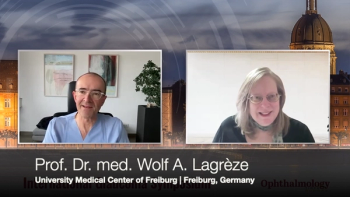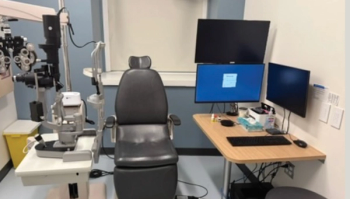
ECP safely lowers IOP before cataract surgery
Dr Randolph Evans argues that endocyclophotocoagulation (ECP) is a simple, safe and effective procedure for achieving IOP lowering in patients with medically controlled glaucoma who also require cataract surgery
Endocyclophotocoagulation (ECP) is a simple, safe, and effective procedure for achieving IOP lowering in patients who have medically controlled glaucoma and need cataract surgery, said Randolph R. Evans, MD, at the Nashville Academy of Ophthalmology meeting.
Laser energy is applied to the ciliary processes to destroy ciliary epithelial cells that produce aqueous humour.
450 eyes
Dr Evans reported that, over the past 5 years, he and his practice partner, Bill Schenk, MD, have performed ECP combined with phacoemulsification in about 450 eyes with excellent results that mirror outcomes reported by others, including Stanley Berke, MD.
Dr Berke and colleagues evaluated ECP in a large, randomized control trial that included 626 patients who underwent phaco plus ECP and 81 patients who had phaco alone. After a mean follow-up of about 3 years, the patients who had the combined procedure benefited with a 3 mm Hg IOP reduction from baseline and were using, on average, one less medication than before surgery. In the control group, IOP decreased initially but began to increase over time.
At the end of follow-up, mean IOP in the phaco-only group exceeded the baseline value, and these patients had no change in their medication use.
Newsletter
Get the essential updates shaping the future of pharma manufacturing and compliance—subscribe today to Pharmaceutical Technology and never miss a breakthrough.




























